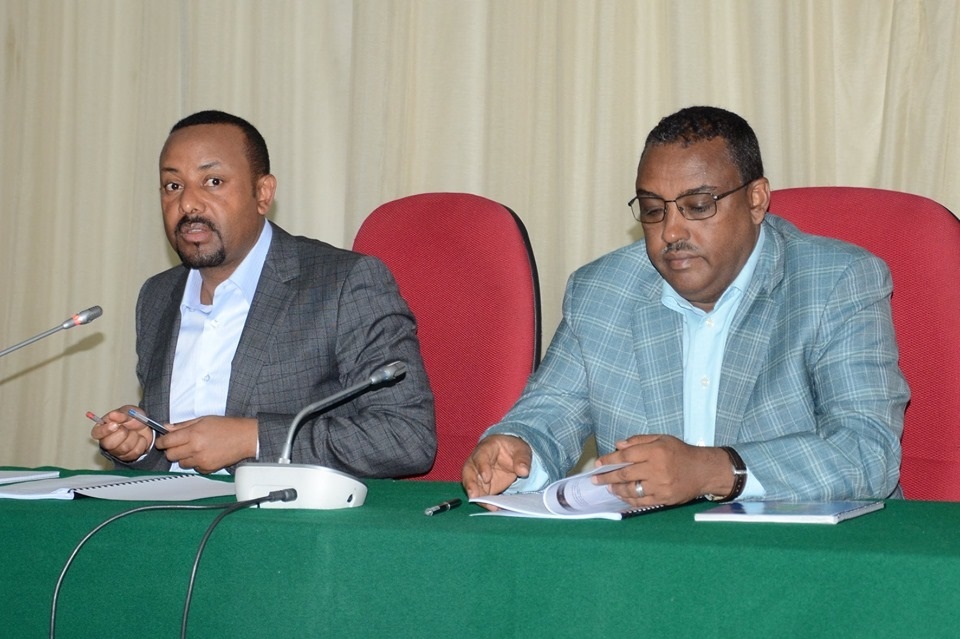EPRDF Executive Committee Passes Resolutions Pertaining to Economic Development - ENA English
EPRDF Executive Committee Passes Resolutions Pertaining to Economic Development

Addis Ababa May 7/2011 The Ethiopian Peoples' Revolutionary Front (EPRDF) Executive Committee has passed resolutions that will help boost the country's economy, following extensive discussion about the economy of the country.
The committee reviewed the performances from Ethiopian fiscal years 2003 to 2010.
In a communique it issued yesterday, the executive committee said the average GDP registered during the period was 9.6 percent, with 5.7 percent growth in agriculture, 19.1 in industry and 10.3 percent in the services.
The GDP in Ethiopian fiscal years 2008 to 2010 during the second GTP-II has declined from 10.1 percent to 8.6 percent in the past three years, it noted.
The committee reviewed that the instability in the country and the low FDI flow brought about the cooling of the economy.
It further noted that the effort to limit inflation into a single digit by creating stable macro-economy was not successful in the years. Consequently, inflation reached 13.1 percent at the end of the Ethiopian fiscal year 2010.
In general, the loan-based financial development model the government has been pursuing and low capacity of the management of huge state-owned projects have pushed the economy into problem.

The committee recalled that short-term loans which resulted in significantly increasing foreign loan were suspended indefinitely.
The executive committee, which observed the decisiveness of prevalence of peace, justice, and good governance as well respect for human rights for the overall activities in the country, stated that the efforts to rectify the lack of those has helped to create favorable environment that makes the people turn their faces toward development.
The committee reviewed that the bilateral and multilateral relations which helped to improve the influence and acceptance of the country will contribute to change the economic challenges into opportunities.
EPRDF indicated that the improved engagement of the Ethiopian Diaspora and the scaled up participation of the public in political and developmental spheres has also created opportunity in re-invigorating the economy.
The government has also imposed limits on loan to meet budget deficit not to exceed 3 percent of the economy and ensure macroeconomic stability by restricting government spending and boosting tax income, it stated.
Following thorough discussion about the challenges the country is facing and the national reform underway, the executive committee put forward the directions below.
According to the executive committee, the sectors to be given attention are fast and sustained growth in macro economy, avoiding heavy loans, and rescheduling payments of loans.
Modernizing the tax system, taking legal action against those who fail to pay taxation, drying contraband from the source, and refraining from debts that cause huge debt burden will also be focused on.
Improving small and large scale irrigation, financial supply for agriculture inputs, productivity of livestock, improving productivity of the agriculture sector, reducing post-harvest waste, implementing food security system based on research and natural resources management are the other resolutions to be implemented.
Accordingly, the committee resolved that wheat, malt, edible oil be produced to fully meet local consumption within a short period. Mining, manufacturing and tourism will also be given the next priority.
Interference of the government in the economy has to follow different form of discipline that ensures the creation of plane field of competition which ascertains the equal, fair, transparent participation of all economic actors
Infrastructure that promotes local job creation and encourage directive investment, particularly economic measures based on industrial parks will also be taken, it concluded.